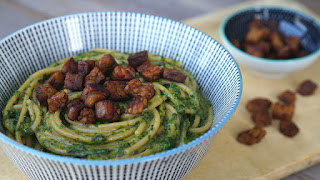What are Probiotics?
Known as good bacteria, probiotics are live beneficial bacteria like the ones found in our digestive system, that keep our digestive organs healthy and functioning properly. A healthy digestive system promotes good overall health.
Species of Probiotics
There are many species of bacteria, but most come from two groups:
Lactobacillus: Found in the digestive system, urinary system and female genital system
Bifidobacterium: Found in the intestines.
Both break down foods, help the body to take in nutrients, control the population of bad bacteria and many others beneficial activities for the human body.
Known as good bacteria, probiotics are live beneficial bacteria like the ones found in our digestive system, that keep our digestive organs healthy and functioning properly. A healthy digestive system promotes good overall health.
Probiotics Benefits:
- Balances the friendly bacteria in digestive system
- Boosts the immune system
- Reduces inflammation
- Protects liver
- Treats diarrhea
- Treats vaginal infections
- Prevents colon, bladder and colorectal cancers
- Prevents urinary infections
- Reduces eczema
- Many others
Species of Probiotics
There are many species of bacteria, but most come from two groups:
Lactobacillus: Found in the digestive system, urinary system and female genital system
Bifidobacterium: Found in the intestines.
Both break down foods, help the body to take in nutrients, control the population of bad bacteria and many others beneficial activities for the human body.
Natural Probiotics
Good bacteria can be found in fermented food or supplements.
However, in commercial probiotics products, the bacteria doesn't survive the manufacturing process (pasteurization, sterilization, other).
Homemade is the better choice.
Homemade is the better choice.
Kefir - Kefir is originated from the Caucasus mountains and is a cultured, fermented beverage that tastes like unsweetened yogurt.
It’s made by using grains that are a combination of yeast and bacteria and animal milk (cow, goat, sheep, others) or non-dairy milk (coconut milk, rice milk, coconut water, others). One of the bacterias found in kefir is the Bifidobacterium lactis.
It’s made by using grains that are a combination of yeast and bacteria and animal milk (cow, goat, sheep, others) or non-dairy milk (coconut milk, rice milk, coconut water, others). One of the bacterias found in kefir is the Bifidobacterium lactis.
Kombucha - It's an asian fermented tea made by combining black tea, sugar (cane sugar, honey, others) and a living culture, known as Scoby (symbiotic colony of bacteria and yeast). The colony will eat the sugar, fermenting the tea and leaving it nearly sugar free.
Yogurt - The yogurt is made from fermented dairy and is widely consumed in western societies for containing good bacteria like Lactobacillus acidophilus and bifidobacterium lactis. However, the pasteurization process kills all the living bacteria. Juts the reinforced ones will have bacteria, that is added after pasteurization.
Sauerkraut - Is made from fermenting cabbage in filtered water and salt.
Some of the bacteria found in this popular German food are Lactobaccilus plantarum and Lactobaccilus brevis.
Miso - Is a Japanese paste created by fermenting soybean, barley, rice or others with the koji fungus. It can be used in many dishes, like the Japanese miso soup.
Pickles - Are vegetables that fermented in a glass jar, by using chopped vegetables, filtered water and salt. Pickles in vinegar are not probiotic.
The Lactobacillus brevis bacteria can be found in pickles.
Natto - Are soaked, boiled and fermented soy beans made by using filtered water and the bacteria Bacillus Natto. It's a Japanese food eaten for breakfast. Great source of protein and vitamin K2.
Tempeh - Traditionally made in Indonesia, tempeh is a soybean fermented with vinegar and the tempeh starter culture. Is a great source of protein.
Kimchi - Is a spicy and sour Korean food made by fermenting vegetables in filtered water and salt.
One of the bacteria present in this food is Lactobacillus plantarum. It is also a great source of vitamin C and B, minerals and antioxidants.
Kvass - Originated in Ukraine, this fermented beverage is made by using russian black bread or by using wheat, rye bread or barley and buckwheat meal. It's often flavored with fruits.
The beet kvass variation is also very popular and is made by fermenting beets, sugar and water.
Probiotics Supplements
Are a easy way to have several different probiotics at once. However, many capsules containing the bacterias are not resistant and the bacterias don't reach alive the digestive tract
Symptoms of Gut Flora Imbalance:
- Bloating
- Excess gases
- Acid reflux/ heartburn
- Diarrhea
- Constipation
- Chronic bad breath
- Irritable bowel syndrome
- Skin conditions
- Depression
- Hormones
What damages the Good Gut Bacteria
- Sugar
- Smoking
- Diet low in fiber
- Sedentary lifestyle
- Antibiotics
- Alcohol
- Exposure to pollutants
- Pesticides
- Stress
- Overuse of Medicine (pain killers, sleeping pills, others)
- Poor sleep habits
- Others





















